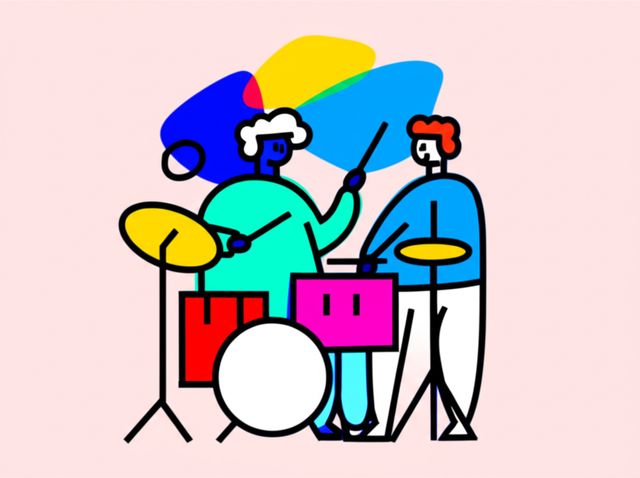Drum Programming
Drum programming is the art of creating drum patterns and sequences using a drum machine or other electronic devices. It is a fundamental skill for musicians and producers who want to create their own beats and rhythms. Drum programming can be used in a variety of genres, from hip hop to electronic dance music to rock.
History of Drum Programming
The history of drum programming can be traced back to the early days of electronic music. In the 1950s, composers such as Karlheinz Stockhausen and Pierre Schaeffer began experimenting with electronic sound generation and manipulation. One of the earliest examples of drum programming is Stockhausen's 1955 piece "Gesang der Jünglinge", which featured a series of electronically generated drum sounds.
In the 1960s, the development of the drum machine made drum programming more accessible to musicians. The first drum machines were relatively simple devices, but they gradually became more sophisticated over time. By the 1980s, drum machines were widely used in popular music, and they continue to be an essential tool for musicians and producers today.
Types of Drum Programming
There are many different ways to approach drum programming. Some drum programmers prefer to use a step sequencer, which allows them to create drum patterns by entering notes into a grid. Others prefer to use a drum machine, which provides a more hands-on approach to creating beats. There is no right or wrong way to drum program, and the best approach will vary depending on the individual programmer.
Benefits of Learning Drum Programming
There are many benefits to learning drum programming, including:
- Increased creativity: Drum programming allows you to create your own beats and rhythms, which can help you to express your creativity.
- Improved musicality: Drum programming can help you to develop your sense of rhythm and timing, which can improve your overall musicality.
- Career opportunities: Drum programming is a valuable skill for musicians and producers who want to work in the music industry.
If you are interested in learning drum programming, there are many online courses that can help you get started. These courses can teach you the basics of drum programming, as well as more advanced techniques. With a little effort, you can learn how to create your own beats and rhythms and become a valuable asset to any musical project.
Careers in Drum Programming
Drum programming is a versatile skill that can be used in a variety of careers in the music industry. Some common careers for drum programmers include:
- Music producer: Music producers are responsible for creating and producing music for a variety of purposes, including albums, films, and television shows. Drum programming is a valuable skill for music producers because it allows them to create their own beats and rhythms.
- Audio engineer: Audio engineers are responsible for recording, mixing, and mastering audio. Drum programming is a valuable skill for audio engineers because it allows them to create and edit drum tracks.
- Sound designer: Sound designers are responsible for creating and editing sound effects for a variety of purposes, including films, television shows, and video games. Drum programming is a valuable skill for sound designers because it allows them to create their own unique drum sounds.
Drum programming is a valuable skill for anyone who wants to work in the music industry. With a little effort, you can learn how to create your own beats and rhythms and become a valuable asset to any musical project.
Online Courses for Learning Drum Programming
There are many online courses that can help you learn drum programming. These courses can teach you the basics of drum programming, as well as more advanced techniques. Here are a few of the most popular online courses for learning drum programming:
- Ableton Push - Workflow and Production: This course from Ableton teaches you how to use the Ableton Push controller to create and produce drum beats.
- Ultimate Ableton Live 9: Part 4 - Synths & Samplers: This course from Udemy teaches you how to use Ableton Live's synths and samplers to create drum sounds and beats.
- Garageband for Songwriting and Music Production: This course from Coursera teaches you how to use Garageband to create and produce your own songs, including drum beats.
These are just a few of the many online courses that can help you learn drum programming. With a little effort, you can learn how to create your own beats and rhythms and become a valuable asset to any musical project.
Whether you are a beginner or an experienced musician, online courses can be a great way to learn drum programming. These courses can provide you with the skills and knowledge you need to create your own beats and rhythms, and they can help you to advance your career in the music industry.


